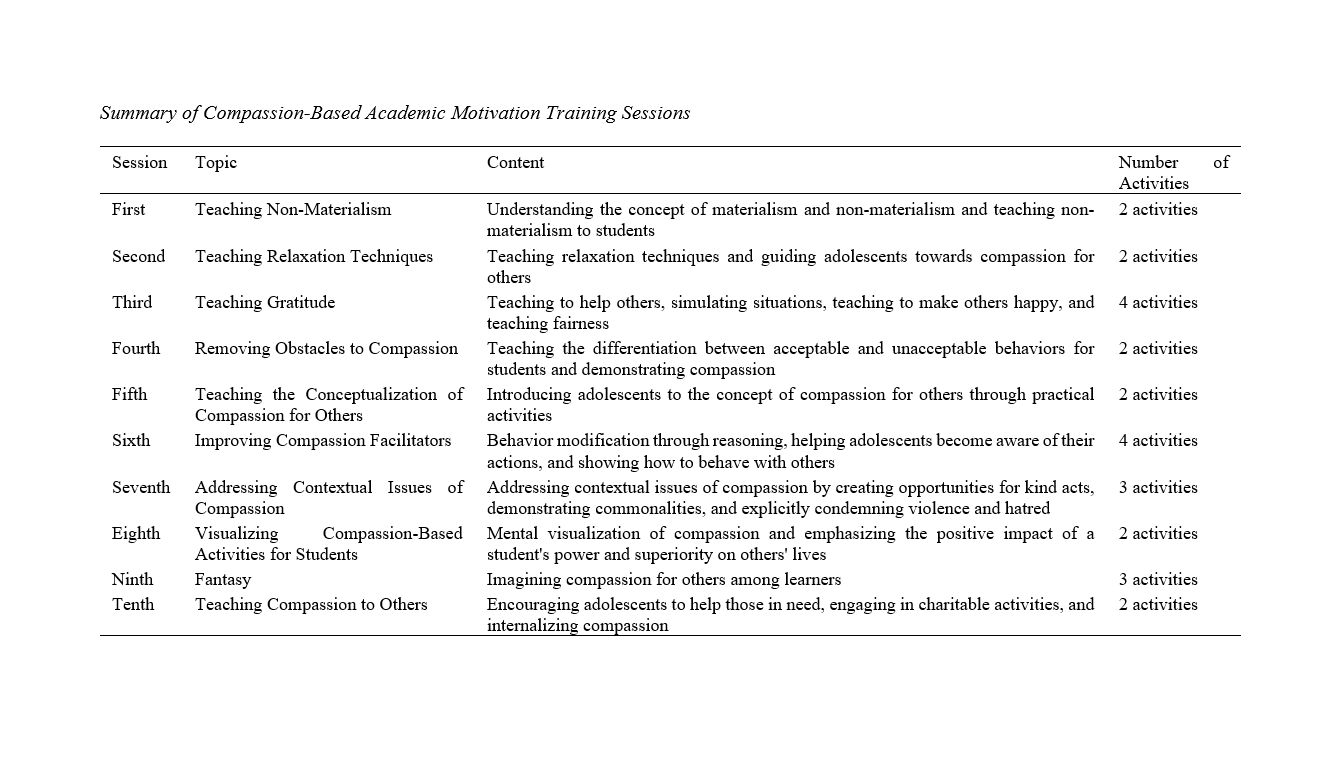Design and Validation of a Compassion-Based Academic Motivation Model for High School Students from the Perspective of Experts
Keywords:
academic motivation, compassion, compassion-based academic motivationAbstract
Objective: The objective of this study was to design and validate a compassion-based academic motivation model specifically tailored for high school students.
Methods and Materials: This study employed a mixed-methods approach. The qualitative phase involved semi-structured interviews with educational experts to identify key themes related to compassion-based motivation. These themes were used to develop the compassion-based academic motivation model. The quantitative phase involved validating the model using the Content Validity Ratio (CVR) and Content Validity Index (CVI), with data collected from 15 experts and 100 high school students in Natanz city. The validation process ensured the reliability and relevance of the model's components.
Findings: The findings indicated that the compassion-based academic motivation model is effective in enhancing students' intrinsic motivation and engagement. Key themes such as non-materialism, gratitude training, and relaxation techniques were identified as central to fostering a supportive and compassionate learning environment. The validation results confirmed the model's relevance and reliability, with all components achieving acceptable CVR and CVI values. The study also found that students who participated in compassion-based activities were more likely to engage in collaborative learning and help their peers.
Conclusion: The compassion-based academic motivation model presents a promising approach for enhancing student motivation and engagement in high school settings. By integrating compassion into educational practices, educators can create a more supportive and inclusive learning environment that promotes both academic achievement and social-emotional well-being. The findings suggest that compassion-based practices can address some limitations of traditional motivational strategies and support sustained academic motivation.
Downloads

Downloads
Additional Files
Published
Submitted
Revised
Accepted
Issue
Section
License
Copyright (c) 2024 Alireza Rayati Badi (Author); Mohammad Hossein Fallah (Corresponding Author); Saeed Vaziri, Marieh Dehghan Manshadi, Najmeh Sedrpoushan (Author)

This work is licensed under a Creative Commons Attribution-NonCommercial 4.0 International License.








